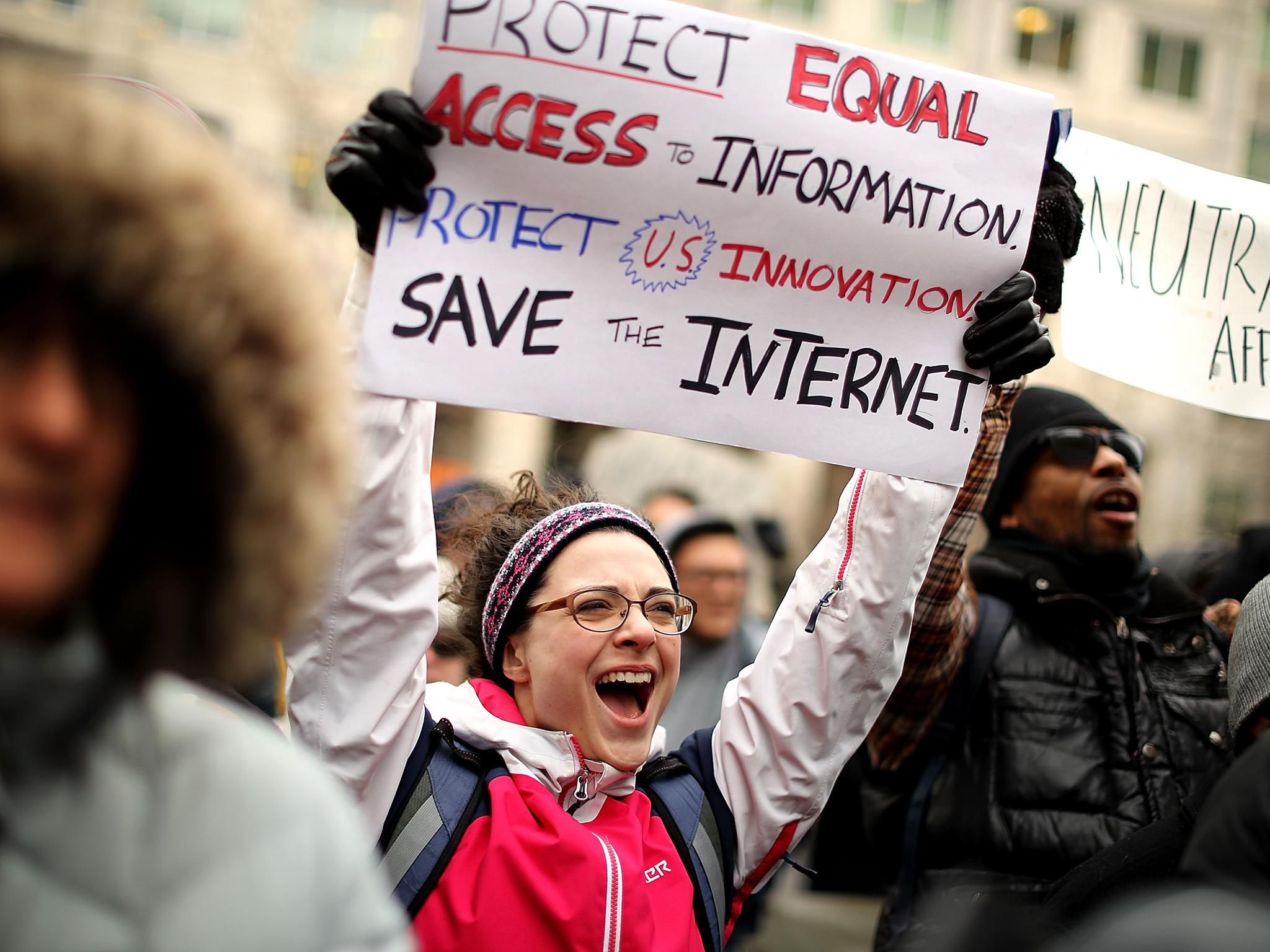Net neutrality repeal slammed as 'illegal' and 'dangerous' amid fears internet users will soon be charged to use sites
Commissioners voted 3-2 to repeal 2015 regulations

Your support helps us to tell the story
From reproductive rights to climate change to Big Tech, The Independent is on the ground when the story is developing. Whether it's investigating the financials of Elon Musk's pro-Trump PAC or producing our latest documentary, 'The A Word', which shines a light on the American women fighting for reproductive rights, we know how important it is to parse out the facts from the messaging.
At such a critical moment in US history, we need reporters on the ground. Your donation allows us to keep sending journalists to speak to both sides of the story.
The Independent is trusted by Americans across the entire political spectrum. And unlike many other quality news outlets, we choose not to lock Americans out of our reporting and analysis with paywalls. We believe quality journalism should be available to everyone, paid for by those who can afford it.
Your support makes all the difference.Dismay boiled over social media after the Federal Communications Commission voted to repeal net neutrality rules.
In a 3-2 vote, commissioners moved to scrap 2015 regulations that barred internet service providers from sorting customers into different tiers.
While commissioners in favour called the rules cumbersome and said they obstructed innovation, the widely anticipated move had for weeks drawn outrage from people who warned that commissioners would allow providers to control how users experience the internet by slowing or halting service.
Elected officials who had opposed the change weighed in, including a Congressman representing Silicon Valley, and multiple members of Congress said they would offer legislation to reverse the FCC. New York Attorney General Eric Schneiderman called the move “illegal” and vowed to sue, presaging what will likely be a number of legal challenges.
So too did companies, like Netflix, whose service is founded on swift internet access.
Advocacy organisations that had fought the move issued calls to organize, saying the fight should shift to persuading Congress to enact new rules.
The vote unleashed a flood of tweets decrying the vote. Some users warned that a scarcity of service providers where they lived would mean they were at the mercy of newly empowered corporations.
Others played on the notion that the move would mean degraded service for people who could not afford a faster option.
Those concerns echoed the warnings of the two FCC commissioners who opposed the move, warning it would give service providers sweeping authority to determine who sees what online.
Commissioner Jessica Rosenworcel issued a call to action, saying “this is not over” and urging people to continue “raising a ruckus”.
The White House backed the change, with press secretary Sarah Huckabee Sanders saying the administration supports the “effort to roll back burdensome regulations.effort to roll back burdensome regulations”.
Because presidents have the power to appoint FCC commissioners, the agency tends to vote along partisan lines. Donald Trump elevated Ajit Pai, who championed the net neutrality rollback, to his current role as the panel's chairman.
Join our commenting forum
Join thought-provoking conversations, follow other Independent readers and see their replies
Comments